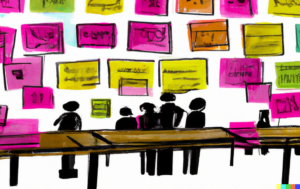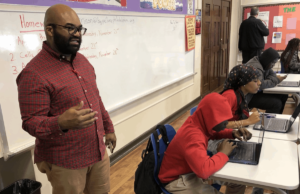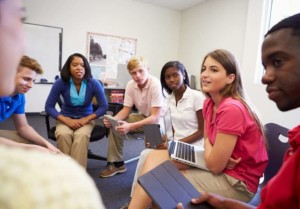Interview: Toby Rowland, CEO & Founder, Manga High
It’s a Friday in the UK, and near the end of the day. Toby Rowland, CEO of Manga High, is pleased at the number of high-level mathematics games played by students from all over the world. He estimates they will hit 12,000 games played by the end of the clock. And this is on a national holiday, and the teachers are not even teaching.
What’s happening here? Math games at Manga High, an online model for mathematics teaching has captured the attention of teachers and students in countries like England, India, and the United States. It’s the beginning of a new market in a highly fragmented academic software industry — fremium, highly challenging, games-centric mathematics teaching.
What’s working with this model?
Manga High exists as a free service for students and teachers, or anyone wishing to up their math game. Manga High uses the soft touch, or “low touch” form of selling to convince teachers that they can boot up to a premium subscription model and expose kids to even more challenging games that Rowland says train them for the types of exam questions they face on their moves from one grade level to the other. Many of these students even go beyond, he says. It’s the kind of social reward-centric learning that keeps students pushing through their own boundaries.
The benefit to teachers? Kids improve their scores, and teachers use the back end to form analytical models to improve their teaching, leading to a virtuous cycle of analysis, implementation and improvement.
How does he do it so well? A self-described “geek” at heart, who used to love school, Rowland spent at King.com, the largest skills gaming company in the world, before founding Manga High. Prior to that, he worked at Walt Disney TV in London handling marketing distribution for the UK. After surviving the tech bubble relatively unscathed in the late 90s, it clicked for Rowland that gaming was really luring kids into skills-based learning, whether they knew they were headed that way or not. The fragmented academic software industry looked too good to pass up for a guy who built his mojo off of start-ups in the 90s.
Rowland tells me he was thinking back then: “These people are improving their skills through casual games. If you made a different type of casual game, people could develop better skills that are much more valuable to them. I saw something that had a lot of potential and is useful.”
Students that get looped into the free site find themselves looking for harder and harder challenges, which is a paradox to what most teachers experience, says Rowland. When they lead students to difficult questions in textbooks, they lack the motivation. “Teachers find harder questions in books as being unattractive, but what we see online is students actively wanting to answer extreme questions,” says Rowland.
Rowland says that up to a hundred schools a day sign up to access a functionality that trains the students for higher order thinking blended with a feet-on-the-ground teaching model where students work with teachers in groups to problem solve. But the student is tapped into the internet for a good length of sustained learning time, which works well with how Internet-raised youth access and play with information.
“In an hour, a student might do 250 math exercises,” says Rowland. “That density of work you can’t achieve in any other way.”
“What we believe is that students will start to rely on software like Manga High for the building of specific hard skills. Putting multiple skills together to solve a problem.”
A Change in Academic Software and Learning Environments
But what’s really happening here is that frontier thinkers like Rowland have clued into the fact that the Internet has changed the way students process information, and more importantly, search for solutions and networks to help them build a case for new models of thinking.
And most interestingly, Rowland thinks it’s changed the dynamics of classrooms.
“[The internet and internet software] is incredibly efficient at building skills in a short period of time. This is going to change the way you use teachers,” says Rowland.
And for people who have their commercial services radar on, this is like the early web all over again. Academic software sites are in isolation, and they have not moved into an ecosystem of products aligned on one platform.
“Manga High is my response of an environment that is in the early stage of development. The academic internet is a long way behind where the consumer internet is.”
“I like that, because there is a lot more scope for invention and shaping that environment.”





0 Comments
Leave a Comment
Your email address will not be published. All fields are required.